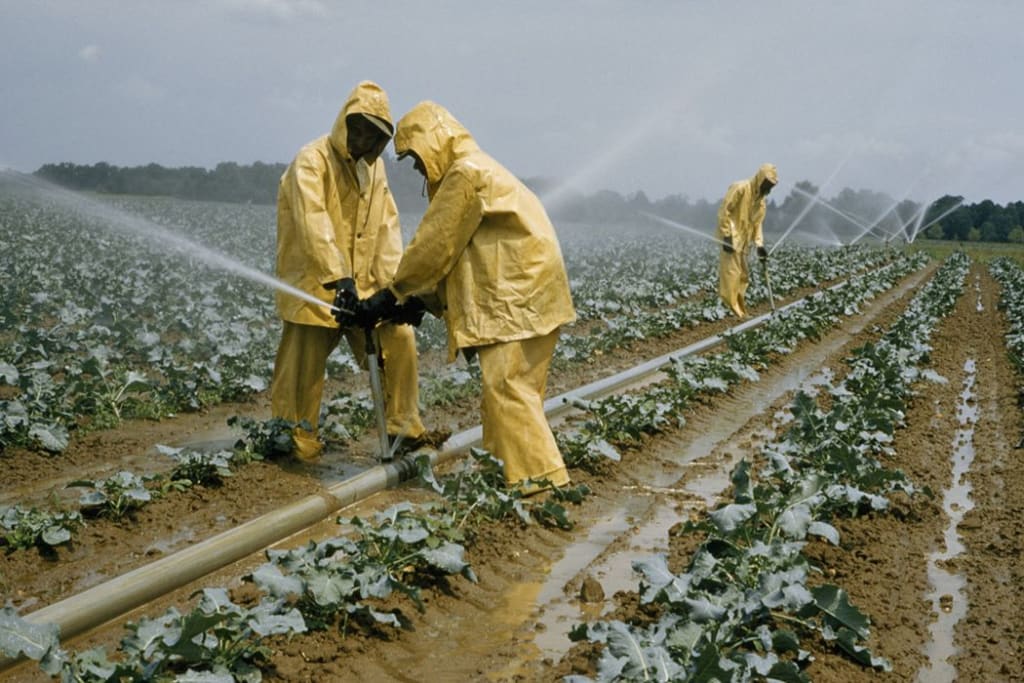AGRICULTURE TEC
ADVANCED METHODE OF AGRICULTURE

I. Introduction
A. Definition of Agriculture: Agriculture is the cultivation of plants, animals, and other life forms for food, fuel, and other products. It is the process of producing food, fiber, and other goods through farming and forestry. Agriculture encompasses a wide range of activities, including planting and harvesting crops, raising livestock, and managing land and natural resources.
B. Importance of Agriculture: Agriculture is a fundamental part of human civilization and has played a crucial role in shaping the world as we know it. It is responsible for providing food for the global population, creating jobs and economic opportunities, and conserving biodiversity. Agriculture also plays a crucial role in maintaining the health of our planet's ecosystems, as well as in mitigating the effects of climate change.
C. Brief history of Agriculture: The history of agriculture dates back to the Neolithic period, around 12,000 years ago, when human populations began to settle down and develop farming techniques. Since then, agriculture has undergone many changes and developments, such as the introduction of irrigation systems, the use of plows and other tools, and the domestication of plants and animals. Today, agriculture continues to evolve with the use of modern technology and scientific advancements.
II. Types of Agriculture
A. Subsistence Agriculture: Subsistence agriculture is the practice of growing crops and raising livestock primarily to meet the needs of the farmer and their family. This type of agriculture is typically found in rural areas and developing countries, where farmers may not have access to markets or resources.
B. Commercial Agriculture: Commercial agriculture is the practice of growing crops and raising livestock for sale on the market. This type of agriculture is typically found in developed countries and is characterized by large-scale operations and the use of advanced technology and equipment.
C. Intensive Agriculture: Intensive agriculture is characterized by the use of high inputs such as fertilizer, water, and labor to achieve maximum yields. This type of agriculture is typically found in small areas with high population densities, such as in Asia and Europe.
D. Extensive Agriculture: Extensive agriculture is characterized by low inputs and large areas, such as in ranching or pastoral farming. This type of agriculture is typically found in regions with low population densities and harsh climates, such as in Australia and Africa.
E. Organic Agriculture: Organic agriculture is a type of farming that uses natural methods to grow crops and raise livestock without the use of synthetic chemicals or genetically modified organisms. This type of agriculture is characterized by sustainable practices such as crop rotation, composting, and natural pest control.
III. Advancements in Agriculture
A. Technology in Agriculture: Technology has played a major role in advancing agriculture. Modern technology such as precision farming, GPS, and drones are helping farmers to increase efficiency, reduce costs, and improve crop yields.
B. Genetic Engineering in Agriculture: Genetic engineering is the process of manipulating the genetic makeup of plants and animals to improve their characteristics. Genetic engineering is being used to develop crops that are resistant to pests and diseases, can withstand harsh climates, and have higher yields.
C. Precision Agriculture: Precision agriculture is the use of technology and data to optimize crop production. This includes using GPS, sensors, and drones to gather data on soil moisture, crop health, and weather patterns, which can then be used to optimize planting and harvesting.
D. Irrigation and Water Management: Irrigation is the practice of applying water to crops to ensure their growth and survival. Modern irrigation systems are designed to be more efficient, using less water and reducing the risk of runoff.
E. Use of Fertilizers and Pesticides: Fertilizers and pesticides are essential for modern agriculture, providing
About the Creator
Yuvaraj Murugasan
"Discover thought-provoking content on our page. From latest news and mystery,crime,thiriller,death to cutting-edge technology, we offer something for everyone. Join us for a journey of learning and inspiration. Stay tuned!"






Comments
There are no comments for this story
Be the first to respond and start the conversation.